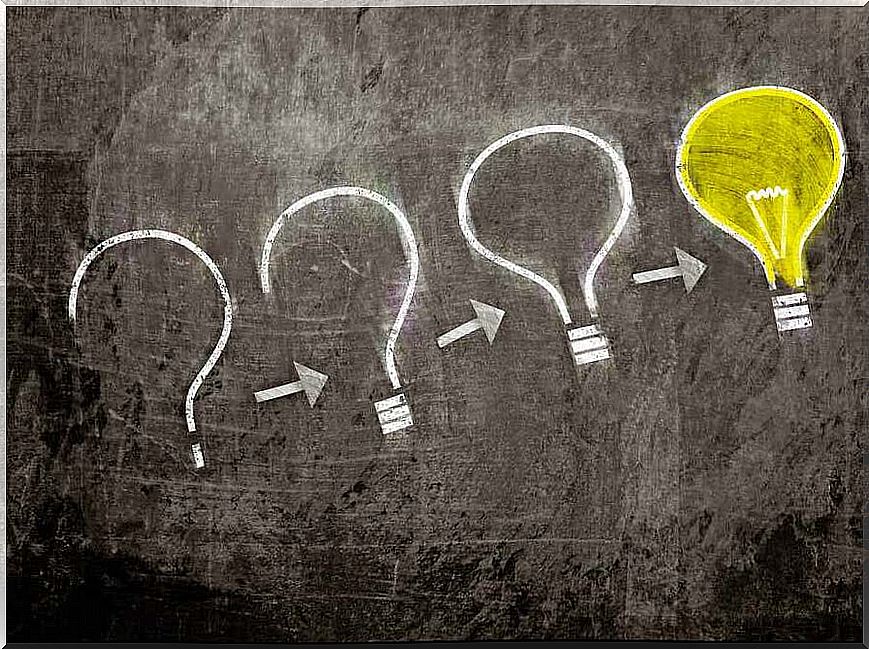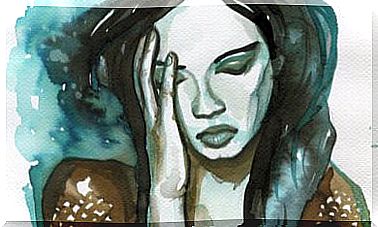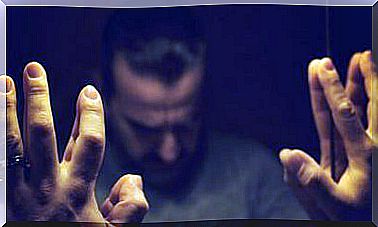Do You Know How To Transform A Negative Thought Into A Positive One?

Can a negative thought be transformed into a positive thought? Barbara Fredrickson, a psychologist at the University of North Carolina (USA), has shown how an optimistic attitude towards life can help the brain to fight against negative emotions. The researcher has found that, through certain exercises, the body can be trained to promote positive responses and multiply them, thus generating a natural buffer against stress and depression.
The first thing we have to be clear about is that the thoughts to which we “declare war” are going to attack us. If every time a negative thought comes to mind, we resist it, oppose it, or deny it, what is going to happen is that that thought is going to persist, and it is going to remain in our mind over and over again. Each thought will trigger more thoughts of the same nature, and so on until generating a whole cognitive flood that does not help us.
The thoughts we have can affect our daily lives and even our emotions and behaviors. It is important to understand the relationship between countering negative thinking and reducing the negative consequences of it. For this, the first thing we have to do is identify our automatic negative thought patterns, which by force of habit have become part of our fundamental beliefs.
Our core beliefs are full of cognitive biases or distortions. It is time to identify these distortions and combat them to generate positive thoughts in each new situation. These biases or distortions make our mind eliminate the information that does not suit it for the maintenance of our beliefs and enlarge or magnify the information that does agree with our way of seeing life.
Thoughts are only a modifiable part of you
The brain does not seek the truth, but rather to survive. In a prehistoric world, this way of mental behavior was very successful, but today many things have changed. Now it is not so necessary to give a quick response to survive, as a response adapted to each situation. We have to bear in mind that our brain can, at times, be wrong: it may show us the situation as it thinks it is and not as it really is.
The mind seeks to save energy, to quickly give us a response to a specific event, to try to take control and provide us with security and tranquility. It is in these mental shortcuts that the greatest distortions occur. Our primitive brain tends to act quickly, as our ancestors had to act to survive, hence the excess of generalizations, negative leaks and mental rigidity when we process information quickly.

At present, in our society there are very few situations of real danger that we find ourselves in our day to day; almost all threatening situations are imagined or for which the consequences are oversized. Processing information quickly makes us fall into biases that try to make a distorted image sharp due to the speed with which we have tried to process it.
One of the biggest involuntary distortions is accepting as absolute truth the probability that something might happen. This leads us to act anxious or depressed without the event having occurred. Only about 20% of our thoughts actually occur. Thus, our thoughts should not be the judges of our life, but rather the spectators.
Understand your mind and your mind will understand you
Most of us tend to devote part of our attention to the activities we are doing at the moment, while the mind and thoughts are working on another problem. To do so is called living on “automatic pilot”, going about what we do with little awareness of the details of the moment.

Being fully aware of what is happening here and now is the ideal state to combat negative thoughts. Accepting that these types of thoughts are necessary in certain circumstances, and a vicious circle of negative premonitions that feed off each other, gives us the key to counteract them by thoughts more in line with reality.
There may be elements of certain situations that we cannot change, such as pain, illness or a difficult circumstance, but at least we will be able to realize how we react or respond to everything that happens to us. By doing so, we will put ourselves in a position to develop strategies to change the relationship we have with our circumstances and the filters – not always friends – that we use to process them.









